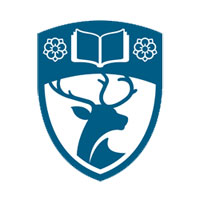fees waived
Zoology, BSc (Hons)
University of Southampton, United Kingdom
Subject ranking
UK / QS 2025 13th
UK / THE 2025 14th
UK / Times 2025 19th
Costs
food & rentS$17.3K / year
Entry requirements
Scholarships
21 - 50 available
10 available
Unlimited quantity
Unlimited quantity
Limited quantity
Information
Code
Intakes
Website (External)
Programmes
Information
Duration
2028
Zoology addresses critical global challenges through a three-year degree based in a state-of-the-art Life Sciences building. Students explore animal life from cellular biology to ecosystems, gaining insights into evolution, conservation, and behaviour via diverse modules. Expert teaching, combined with field trips to the UK, Spain, and Belize, equips graduates for careers in veterinary medicine, conservation, animal management, and beyond. In the final year, undertake an independent research project, with options for a Belize trip on tropical ecology or study abroad in Europe or Australasia. Our collaboration with Marwell Wildlife further enhances specialised expertise.Modules include foundational topics like Chemistry of Life and Human Genome in year one, progressing to Animal Behaviour, Evolution, and Conservation Management in year two, and Biodiversity in year three. Assessment methods encompass coursework, laboratory reports, essays, projects, presentations, and exams, fostering skills for post-graduation success.
We have a varied range of modules for all years, to offer you the opportunity to tailor your studies to your passions and to equip you with the skills and experiences needed for success as a graduate. Examples of modules include: Year 1: Chemistry of life, Fundamentals of Biochemistry, Fundamentals of Cell Biology & Physiology, How to Think Like a Scientist, Human Genome & Disease. Year 2: Animal Behaviour, Evolution, Behaviour & Ecology Field Course, Conservation Management Field Course, Vertebrate Zoology. Year 3: Biodiversity & Conservation, Cancer & Chromosome Biology, Tropical Ecology Field Course. For full list of all modules available, please visit the course page. Please note: information included was correct at time of publication, March 2024.
A local representative of University of Southampton in Singapore is available online to assist you with enquiries about this course.

